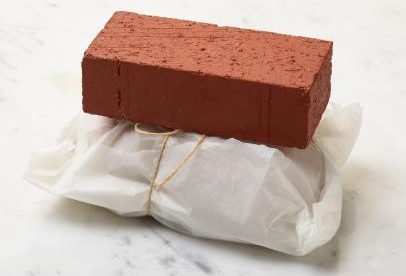The Sandwich You Don’t Want to Eat

Throughout the 1920s and into the early 1930s, alcohol was effectively illegal in the United States. But this period, known as Prohibition, was hardly the first time American governments tried to ban booze, directly or indirectly. For example, in 1896, New York State passed sweeping liquor regulations called the Raines Law, named after the state senator who sponsored it. The law raised liquor licenses dramatically, raised the drinking age, and most importantly, it mandated that bars not open on Sundays. In an era of the six-day work week, this meant most laborers couldn’t go to the saloon on their day off, as the saloon would be closed.
But like most laws, this one had some exceptions. And those exceptions led to loopholes — and terrible sandwiches.
While the Raines Law mandated that most bars remain closed on the Christian sabbath, hotel restaurants were still allowed to serve liquor with a meal. At the time, though, those hotels weren’t these huge complexes with hundreds of rooms; more likely, they were tiny inns with a dozen or so beds. Most of these innkeepers had small kitchens and would bring food — and a drink — to your room, and it only made sense to also provide space for guests to dine in a lobby restaurant. As the New York Times reported a week after the law went into effect (pdf), it was, therefore, “not difficult to get a drink in restaurants which hold licenses as hotels.” The law didn’t apply to them, and the police let those businesses operate as usual.
For the owners of other saloons, this provided an opportunity. While many closed down, those who wanted to put up a fight now had some ammo. As recounted in the book “Last Call: The Rise and Fall of Prohibition,” “in Brooklyn alone, where there had been thirteen hotels before the Raines Law, there were soon more than 2,000 — virtually all of them saloons whose back rooms or upstairs spaces had been subdivided by the addition of flimsy walls [and adorned with] threadbare cots.” With the “hotel” part now satisfied, the bars — which didn’t often have commercial kitchens — now needed to find a way to provide food to its patrons. Luckily, as the Times reported in the above-linked article, “a sandwich counted as a meal.”
But there was no requirement that the guests actually eat the sandwich. Atlas Obscura dives into the meal no one wanted to eat:
When they ordered an ale or whisky, the waiter or bartender would bring it out with a sandwich. Generally speaking, the sandwich was not edible. It was “an old desiccated ruin of dust-laden bread and mummified ham or cheese,” wrote the playwright Eugene O’Neill. Other times it was made of rubber. Bar staff would commonly take the sandwich back seconds after it had arrived, pair it with the next beverage order, and whisk it over to another patron’s table. Some sandwiches were kept in circulation for a week or more.
In fact, there’s some evidence that the Raines Law sandwich, as this monstrosity was often called, was more useful as a weapon than as sustenance. According to “The Social History of Bourbon,” “once in a while some yokel picked up a Raines Law sandwich and tried to eat it, and everybody had a good laugh. There is a legend that at least one back room fracas ended tragically when a man snatched up a venerable Raines Law sandwich and brained his adversary with it in one blow.”
The Raines Law is no longer on the books in New York, but despite the culinary workaround, the law lasted longer than you’d think — it was repealed in 1923, as part of an early pushback against Prohibition and its unintended consequences.
Bonus fact: The sandwich is named for John Montagu, the 4th Earl of Sandwich — and likely came to be in order to further another vice: gambling. Per History, “legend has it, and most food historians agree, that Montagu had a substantial gambling problem that led him to spend hours on end at the card table. During a particularly long binge, he asked the house cook to bring him something he could eat without getting up from his seat, and the sandwich was born.”
From the Archives: Where No Sandwich Has Gone Before: Space. The final frontier. This is the voyage of a corned beef sandwich.
